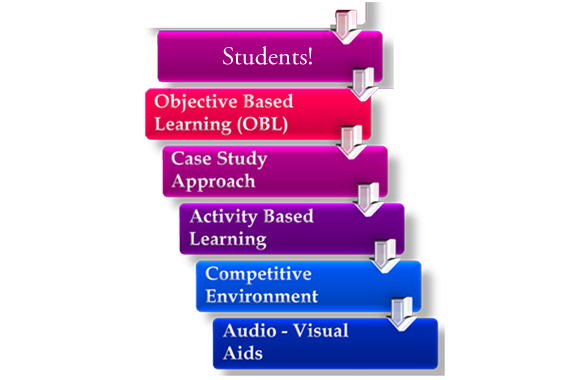By Paul L. Thomas, Ed.D. | Originally Published The Becoming Radical. March 9, 2014
As a teacher educator, I now spend much of my spring visiting schools and observing my seniors who are learning to teach in extended field experiences (my university’s version of student teaching).
What I have learned over more than a decade of making these visits and providing new teachers productive feedback is that one aspect of becoming and being a teacher is a complex but clear combination of teacher persona/presence, teacher awareness of students, and teacher engagement with those students during the flow of instruction.
My most direct and simple way to share this with my teachers-to-be is to note that they appear to be teaching the lesson and not their students. I have seen this phenomenon as I walk the halls of my university where professors are prone to lecture, and have noted on some occasions, I fear that if all the students were to leave the class, the professor would simply continue to hold forth.
Central to this aspect of teaching for me is the problem with lesson planning as it contrasts with being prepared to teach. I have noticed that the traditional emphasis on lesson planning and the older god of behavioral objectives (how I was trained to teach) and the newer god of backward design (teaching with the assessment in mind) both fail many teachers by forcing so much investment in planning that teachers feel consciously and unconsciously obligated to implement the plan and assessments prepared regardless of what learning is taking place. (The last thirty years’ focus on high-stakes standards-based teaching has only intensified this problem of teacher time inappropriately invested in planning and aligning and not preparing the what and how of each day’s lesson based in part on all the lessons that have come before.)
The result is lesson plans and tests done to students with the outcomes often misleading and counter-educational (this rigid and mechanical process can raise test scores and mask that learning never occurred).
Plans, tests, and all sorts of prescriptions of learning and teaching are far less important, I believe, than teacher expertise (yes, a teacher must know everything about which she/he is to teach, and then almost everything else—this is the critical authoritative imperative) and teacher awareness of her/his teacher persona as well as engagement with students during the flow of instruction.
This in-class concern about teaching is a subset of a larger problem related to missionary zeal and the cult of personality.
Often when I am teaching graduate courses in education, veteran teachers will respond to questions about their teaching by simply saying “I teach four block” or “I use Marzano”—programs and education gurus.
While “missionary zeal” is often invoked about and as a positive aspect of Teach for America and its recruits, “missionary zeal” can be seen in nearly blind commitments to phonics instruction, group work, Nancie Atwell’s workshop method, literature circles, understanding by design, and a list too long to identify here and not bound to any end of the ideological spectrum.
I’ve written about this before, and while it is a personal anecdote, I argue this is representative of the problem.
My daughter worshipped her second-grade teacher and my wife taught at the primary school my daughter attended. One day my wife and my daughter’s teacher were talking, and that teacher noted that my daughter had been making really high grades on her spelling tests, until the class began some direct phonics instruction marking my daughter’s grades dropping.
When we teach a lesson, a plan, or a program, and when we become so narrowly focused on the cult of personality behind what we teach and how, students are often lost in that missionary zeal, often mis-served.
As a literacy educator for over thirty years, I watch and hear the exhausting grammar and phonics debates refuse to die. These debates are exhausting because they often rest on a false premise, the straw man—that there are teachers who are against teaching grammar and phonics (none exist, by the way)—and devolve into what is most wrong with teaching, the missionary zeal to teach a skill as if it is the ends desired.
Grammar and phonemic awareness are aspects of composing/writing and reading, but when we become bound and determined to teach grammar and phonics without regard to a student’s writing or reading as well as that student’s developing eagerness to write and read, we are no longer teaching students, but appeasing our petty agendas to prove that our way is right and someone else is wrong.
That, simply put, is not teaching.
Teaching must begin in the classroom with what students know, what students don’t know, and what students misunderstand, placing all of that in the context of what students are interested in and what students need.
Teachers then must be prepared to implement a wide array of strategies to foster the outcomes that fulfill those student interests and needs.
If teaching grammar directly and in isolated ways raises student test scores on isolated grammar tests, but students write rarely and many come to hate writing, we have slain the authentic need of students on the alter of teaching grammar for grammar’s sake.
If conducting literature circles creates a well managed classroom, but students come to hate reading and have almost no opportunities to read by choice, we have slain the authentic need of students on the alter of teaching literature circles for literature circles’ sake.
We teach students—not lesson plans, not skills, not programs, not to-the-test, not Common Core or any standards of the moment, not flipped classrooms, not Core Knowledge or cultural literacy, not the teaching bible of the day or the teaching guru of the moment.
We teach students.












Leave A Comment